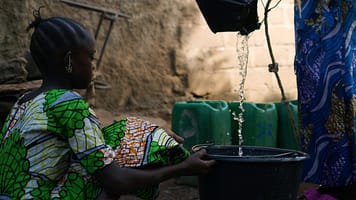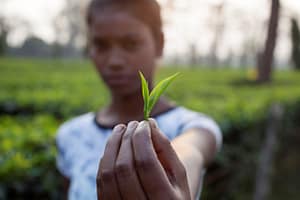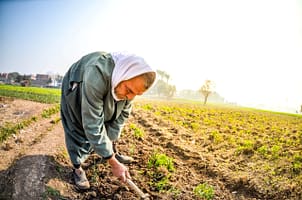All Categories News (455) Explainers (6) Features (194) In the media (262) Press releases (79) Publications (33) Specials (0) Annual reports (7) Blogs (350) From the DG (7) Multimedia (0) Infographics (3) Photos (6) Podcasts (10) Videos (70)
All Locations Africa (532) Algeria (1) Angola (2) Benin (3) Botswana (18) Burkina Faso (10) Burundi (1) Chad (1) Côte d’Ivoire (4) Democratic Republic of the Congo (1) Egypt (49) Eswatini (1) Ethiopia (106) Gambia (1) Ghana (98) Kenya (36) Lesotho (1) Libya (4) Malawi (10) Mali (7) Morocco (22) Mozambique (17) Namibia (6) Niger (1) Nigeria (28) Rwanda (5) Senegal (6) Sierra Leone (1) South Africa (49) South Sudan (2) Sudan (8) Togo (2) Tunisia (10) Uganda (11) United Republic of Tanzania (8) Zambia (40) Zimbabwe (26) Americas (26) Brazil (4) Colombia (5) Ecuador (1) Mexico (4) Nicaragua (1) Paraguay (1) Peru (2) United States of America (4) Asia (685) Afghanistan (8) Azerbaijan (3) Bangladesh (41) Bhutan (3) Cambodia (7) China (18) India (141) Indonesia (2) Iran (2) Iraq (6) Japan (3) Jordan (45) Kazakhstan (6) Kyrgyzstan (8) Lao PDR (22) Lebanon (24) Malaysia (1) Myanmar (15) Nepal (111) Pakistan (108) Philippines (1) Saudi Arabia (9) Sri Lanka (165) State of Palestine (4) Syrian Arab Republic (3) Tajikistan (11) Thailand (2) Turkmenistan (4) United Arab Emirates (17) Uzbekistan (22) Viet Nam (5) Yemen (5) Europe (7) Italy (1) Netherlands (1) Spain (2) Sweden (1) Ukraine (1) Global (178) Oceania (5) Australia (3) Fiji (1) Tonga (1) Vanuatu (1)
All Research Non-research (9) Water data science (234) Water data for climate resilience (21) Water data science for action (97) Water futures data and analytics (53) Water, climate change and resilience (495) Climate mitigation and adaptation pathways (287) Climate policies, finance and processes (49) Fragility, conflict, livelihoods and water (29) Water, food and ecosystems (430) Agricultural water management transformations (49) Integrated basin and aquifer management (31) Next generation irrigation systems (124) Sustainable water infrastructure and ecosystems (108) Water, food, energy nexus (92) Water, growth and inclusion (395) Economics and impact assessment (33) Gender equality and social inclusion (178) Integrated circular economy transformations (60) Water governance and political economy (51)
All Funders & Partners Africa Group of Negotiators Expert Support (AGNES) (1) African Development Bank (AfDB) (2) African Drone Academy (1) African Ministers’ Council on Water (AMCOW) (1) African Union (2) African Union Commission (1) Agriculture And Climate Risk Enterprise (ACRE Africa) (1) Alliance for a Green Revolution in Africa (AGRA) (1) Alliance for Global Water Adaptation (AGWA) (6) Amazon Web Services (2) Aquaporo (2) Arab Water Council (1) Arup (3) Asian Development Bank (ADB) (5) Association of International Research and Development Centers for Agriculture (AIRCA) (5) Centre for Agriculture and Bioscience International (CABI) (1) International Centre for Integrated Mountain Development (ICIMOD) (4) Australia’s Department of Foreign Affairs and Trade (DFAT) (9) Water for Women Fund (3) Australian Centre for International Agricultural Research (ACIAR) (9) Australian Water Partnership (AWP) (4) Bagmati Welfare Society (1) BAIF Development Research Foundation (1) Bangladesh’s Ministry of Agriculture (1) Bangladesh Agricultural Research Council (BARC) (1) CARE (1) Center for Environment and Development for the Arab Region and Europe (CEDARE) (3) Centre for Poverty Analysis (CEPA) (1) Cewas (1) CGIAR (448) Alliance of Bioversity International and CIAT (13) Center for International Forestry Research and World Agroforestry (CIFOR-ICRAF) (3) International Center for Agricultural Research in the Dry Areas (ICARDA) (5) International Crops Research Institute for the Semi-Arid Tropics (ICRISAT) (2) International Food Policy Research Institute (IFPRI) (18) International Institute of Tropical Agriculture (IITA) (1) International Livestock Research Institute (ILRI) (4) International Maize and Wheat Improvement Center (CIMMYT) (10) International Potato Center (CIP) (2) International Rice Research Institute (IRRI) (15) WorldFish (11) Chrysalis (1) Cobra Collective CIC (1) Columbia University (1) Cornell University (1) Council on Energy, Environment and Water (CEEW) (1) Deltares (3) Deutsche Gesellschaft fuer Internationale Zusammenarbeit (GIZ) GmbH (8) Digital Earth Africa (14) Economic Community of West African States (ECOWAS) (1) European Union (EU) (23) European Commission (11) Everest Club (2) Expertise France (1) Farm Africa (2) Farmerline Ltd. (4) Field Ornithology Group of Sri Lanka (FoGSL) (1) Gates Foundation (9) Germany’s Federal Ministry for Economic Cooperation and Development (BMZ) (9) Ghana’s Ministry of Environment, Science, Technology and Innovation (2) Ghana’s Council for Scientific and Industrial Research (CSIR) (2) Ghana’s Ministry of Food and Agriculture (MoFA) (2) Ghana Irrigation Development Authority (GIDA) (1) Global Affairs Canada (3) International Development Research Centre (IDRC) (2) Global Commission on the Economics of Water (2) Global Commission on the Economics of Water (GCEW) (1) Global Environment Facility (GEF) (5) Global Green Growth Institute (GGGI) (1) Global Institute for Interdisciplinary Studies (1) Global Resilience Partnership (GRP) (1) Global Water Partnership (GWP) (21) Google.org (13) Government of Belgium (5) Enabel (5) Government of Iraq (1) Government of Netherlands (1) Green Climate Fund (GCF) (1) GroundTruth (5) Hawassa University (5) Helmsley Charitable Trust (24) iDE (1) IHE Delft Institute for Water Education (7) India’s Ministry of Agriculture and Farmers Welfare (8) Indian Council of Agricultural Research (ICAR) (7) Borlaug Institute for South Asia (BISA) (1) Central Arid Zone Research Institute (CAZRI) (1) Central Research Institute for Dryland Agriculture (CRIDA) (1) India’s Ministry of Jal Shakti (1) Indian Space Research Organisation (ISRO) (1) Innovative Engineering Services (IES) (1) Inter-American Development Bank (IDB) (1) International Dryland Development Commission (IDDC) (1) International Federation of Red Cross and Red Crescent Societies (IFRC) (4) International Fund for Agricultural Development (IFAD) (8) International Institute for Applied Systems Analysis (IIASA) (1) International Union for Conservation of Nature (IUCN) (10) International Water Association (IWA) (3) International Water Resources Association (IWRA) (1) Interstate Commission for Water Coordination of Central Asia (ICWC) (1) Scientific-Information Center (SIC) (1) Japan’s Ministry of Agriculture, Forestry and Fisheries (MAFF) (7) Jordan’s Ministry of Agriculture (2) National Agriculture Research Center (1) Kenya Agricultural & Livestock Research Organization (KALRO) (1) Kwame Nkrumah University of Science and Technology (2) League of Arab States (1) Arab Organization for Agricultural Development (AOAD) (1) Limpopo Watercourse Commission (LIMCOM) (11) McGill University (1) Mercy Corps (2) Microsoft Corporation (5) National Aeronautics and Space Administration (NASA) (1) National Association for Rural Municipalities in Nepal (1) NDC Partnership (1) Nepal Water Conservation Foundation (NWCF) (1) Nepal’s Ministry of Energy, Water Resources and Irrigation (3) Nepal’s Department of Hydrology and Meteorology (DHM) (1) Netherlands Food Partnership (NFP) (1) Netherlands Water Partnership (NWP) (1) Netherlands’ Ministry of Economic Affairs and Climate Policy (3) Netherlands Enterprise Agency (RVO) (1) Netherlands’ Ministry of Foreign Affairs (2) Nigeria’s Federal Ministry of Water Resources (FMWR) (1) Norwegian Agency for Development Cooperation (NORAD) (5) Organisation for Economic Co-operation and Development (OECD) (1) Oxfam International (1) Pakistan Council of Research in Water Resources (PCRWR) (4) Pakistan Ministry of Climate Change and Environmental Coordination (MOCC) (1) Regional Environmental Centre for Central Asia (CAREC) (2) Resurgence (2) Schlumberger Faculty for the Future Stitching Fund (1) Secretariat for the Climate and Environment Charter for Humanitarian Organizations (1) Sierra Leone’s Ministry of Water Resources (1) National Water Resources Management Agency (NWRMA) (1) SNV Netherlands Development Organisation (5) South Asian Association for Regional Cooperation (SAARC) (1) South China Agricultural University (SCAU) (1) Southern African Development Community (SADC) (1) Groundwater Management Institute (SADC-GMI) (1) Sri Lanka’s Ministry of Agriculture (6) Sri Lanka’s Department of Agrarian Development (3) Sri Lanka’s Ministry of Defence (7) Sri Lanka’s Disaster Management Division (5) Sri Lanka’s Disaster Management Centre (5) Sri Lanka’s Ministry of Environment (3) Sri Lanka’s Ministry of Finance, Planning and Economic Development (1) Sri Lanka’s Department of National Planning (1) Sri Lanka’s Ministry of Irrigation (2) Sri Lanka’s Ministry of Mahaweli Development and Environment (1) Sri Lanka’s Ministry of Technology (4) Arthur C. Clarke Institute for Modern Technologies (ACCIMT) (1) National Research Council of Sri Lanka (NRC) (2) Stockholm Environment Institute (SEI) (3) Stockholm International Water Institute (SIWI) (4) SunCulture (1) Swedish International Development Cooperation Agency (Sida) (8) Swedish University of Agricultural Sciences (SLU) (1) Swiss Agency for Development and Cooperation (SDC) (22) Tata Trusts (21) Total LandCare (1) Tribhuvan University (1) UK Research and Innovation (UKRI) (3) UK’s Department for Environment Food & Rural Affairs (DEFRA) (1) UK’s Department for Science, Innovation and Technology (2) Met Office (2) UK’s Foreign, Commonwealth & Development Office (FCDO) (60) United Nations (UN) (90) Food and Agriculture Organization of the United Nations (FAO) (27) Intergovernmental Panel on Climate Change (IPCC) (3) Intergovernmental Science-Policy Platform on Biodiversity and Ecosystem Services (IPBES) (1) International Organization for Migration (IOM) (3) International Telecommunication Union (ITU) (1) Office of the High Commissioner for Refugees (UNHCR) (4) Risk-informed Early Action Partnership (REAP) (1) UN Environment Programme (UNEP) (6) UN-Habitat (1) UN-Water (3) United Nations Children’s Fund (UNICEF) (10) United Nations Convention to Combat Desertification (UNCCD) (1) International Drought Resilience Alliance (IDRA) (2) United Nations Development Programme (UNDP) (3) United Nations Economic and Social Commission for Asia and the Pacific (1) United Nations Economic and Social Commission for Western Asia (ESCWA) (1) United Nations Educational, Scientific and Cultural Organization (UNESCO) (1) United Nations Framework Convention on Climate Change (UNFCCC) (8) United Nations Office for Disaster Risk Reduction (UNDRR) (1) Coalition for Disaster Resilient Infrastructure (1) United Nations Office for Outer Space Affairs (UNOOSA) (1) United Nations Office for the Coordination of Humanitarian Affairs (UN OCHA) (2) United Nations Population Fund (UNFPA) (1) World Food Programme (WFP) (19) World Meteorological Organization (WMO) (1) United States Agency for International Development (USAID) (64) Feed the Future (2) United States Department of State (1) University of Aberdeen (5) University of California, Berkeley (1) University of London (1) School of Oriental and African Studies (SOAS) (1) University of Manchester (2) University of Nebraska (12) Daugherty Water for Food Global Institute (13) University of Oxford (2) WASHNote (1) Water Aid (2) Water Research Commission (WRC) of South Africa (1) Wellcome Trust (2) World Bank (89) International Development Association (IDA) (1) International Finance Corporation (IFC) (1) World Economic Forum (2) World Farmers’ Organization (WFO) (1) World Vision (6) Bangladesh Water Development Board (BWDB) (1) Department of Water Resources (DWR) (2) National Oceanic and Atmospheric Administration (NOAA) (1)
Sort by date Newest first Oldest first
December 15, 2025
IWMI project brings together officials, researchers and communities to protect groundwater in Sri Lanka’s northern peninsula.
December 12, 2025
As Kenya faces worsening drought conditions, a new partnership between IWMI and the Ministry of Water, Sanitation and Irrigation is set to accelerate efforts to expand irrigated land, improve food
December 11, 2025
Asian Development Bank flagship report calls for inclusive, integrated water management for long-term economic resilience.
December 10, 2025
Violence keeps women out of vital water decisions. For stronger water governance and genuine progress on equality, women’s safety must come first.
December 10, 2025
IRRILINE provides smallholder farmers in Ghana with technological advice and financing support to make individual irrigation investments feasible.
December 9, 2025
In one of the world’s most water-stressed regions, water reuse is constrained by scarce data. A gap technology is ready to close.
December 9, 2025
CGIAR’s Digital Transformation Accelerator launched a multi-year effort to advance AI-driven research across food, land and water systems during a workshop hosted by IWMI in Colombo, Sri Lanka.
December 8, 2025
IWMI's e-ReWater MENA brought together experts to assess how AI and digital innovation can drive smarter, scalable water-reuse solutions across the region.
December 8, 2025
IWMI researchers collaborate with CGIAR partners to lay the groundwork for a crosscutting AI platform to improve research processes.
December 5, 2025
Released on Ghana's Farmers Day, the short film "Roots of Tomorrow” celebrates the strength and resilience of women farmers.
December 4, 2025
From classrooms to wells, northern Sri Lanka’s communities are turning data into action, racing to save the groundwater that has sustained generations.
December 4, 2025
IWMI’s Giriraj Amarnath spoke to Sami Zeidan Live on Al Jazeera News on December 4, 2025 about the climate and humanitarian impact of the widespread floods in Sri Lanka. Amarnath
December 3, 2025
With gender-inclusive water access, time once lost to water collection becomes time women can use to earn a more stable income.
December 2, 2025
Tea plantations must work to increase biodiversity, while giving equal attention to securing just and dignified work conditions for plantation workers.
December 2, 2025
In an interview on the 2025 World Water Congress in Morocco, IWMI's Youssef Brouziyne and Alan Nicol highlight the importance of collaboration for sustainable water management.
December 1, 2025
Experts from Kazakhstan, Kyrgyzstan, Tajikistan, Turkmenistan and Uzbekistan explore pathways for sustainable water management and climate resilience.
November 28, 2025
IWMI is supporting national authorities with flooding forecasts, rainfall monitoring, data processing and impact assessments.
November 28, 2025
Stronger cooperation and bold water-smart innovations are driving a new era for Moroccan agriculture.
November 28, 2025
IWMI's Giriraj Amarnath talked to Lewis Vaughan Jones live on BBC News show The Context on November 28, 2025, about the situation in Sri Lanka after Cyclone Ditwah caused widespread
November 27, 2025
Pilot projects are not enough. Nature-based solutions need policy backing, real financing and systematic pathways to scale in MENA.
November 26, 2025
Experts warn that fragmented approaches to water, food and climate are failing and call for integrated solutions to achieve national resilience.
November 25, 2025
In the Chu-Talas Basin, research and farmers’ experience come together to strengthen drought resilience.
November 24, 2025
With projections of up to 1.4 million deaths related to antimicrobial resistance a year by 2030, India needs to take immediate and intensified action.
November 21, 2025
Faced with high energy costs, Nepal’s growing fish industry could find a cost-saving, sustainable solution in solar technology.

























